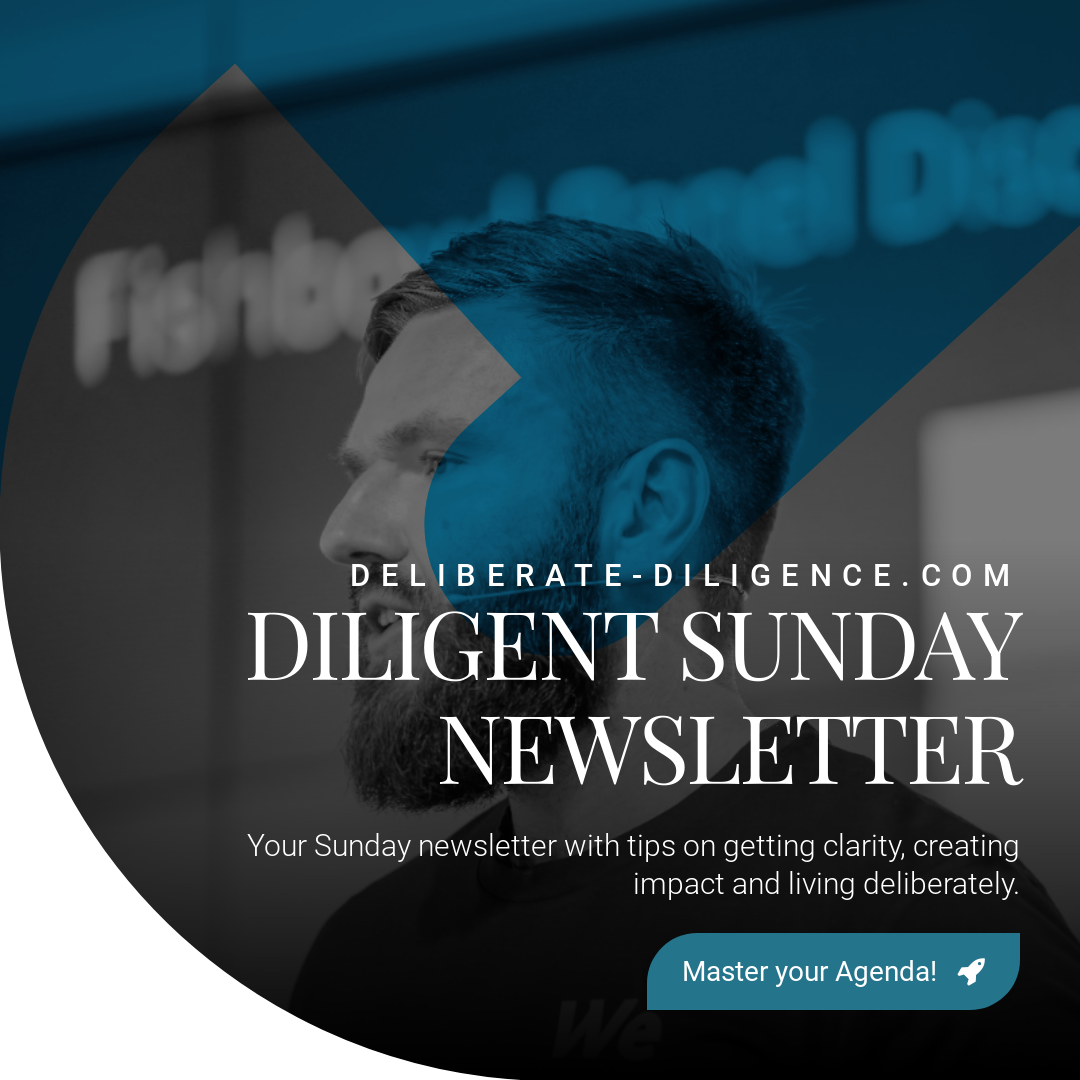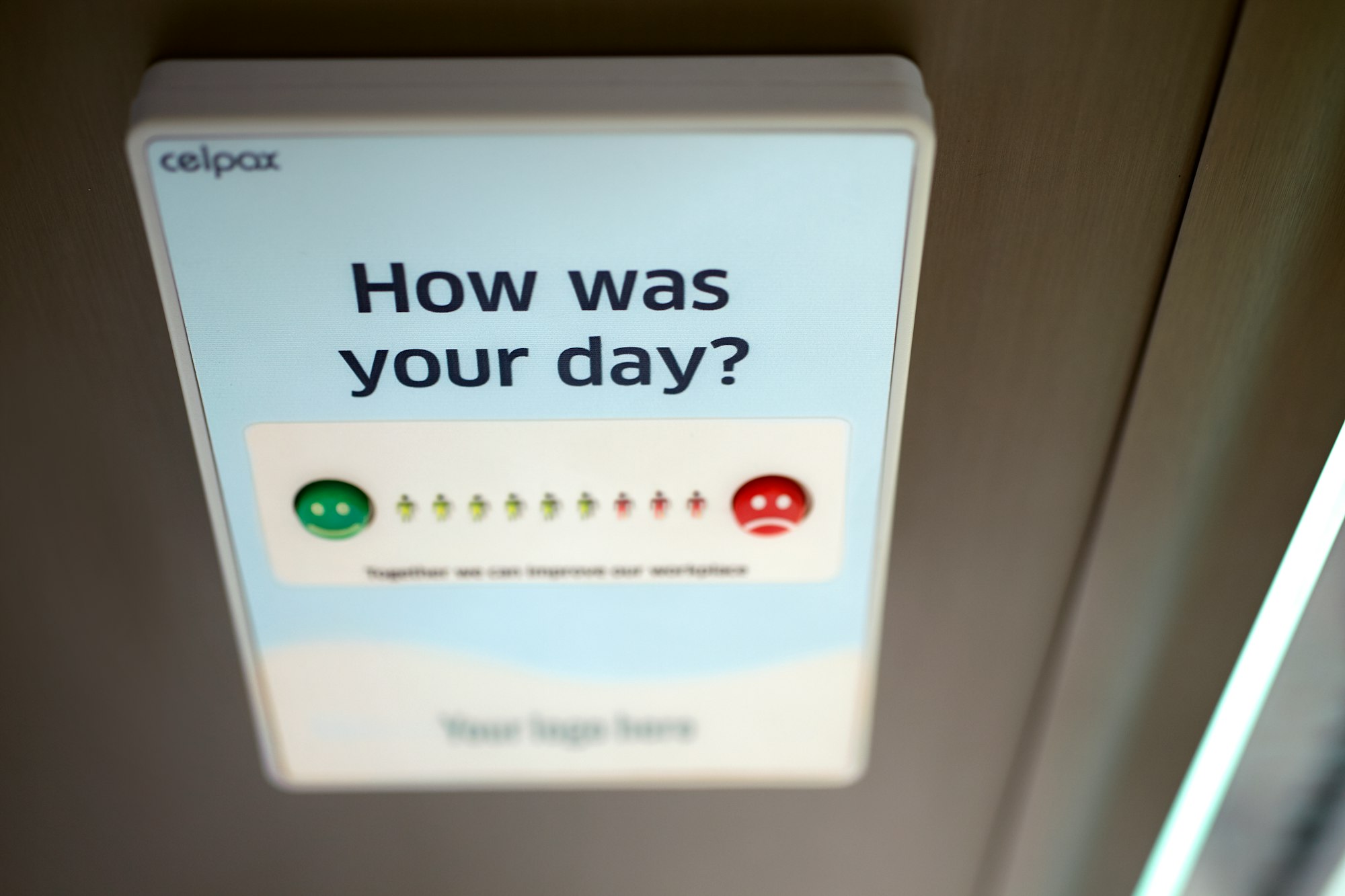Diligent Sunday Newsletter / Issue #4
Get ahead of your personal goals with this Diligent Sunday issue. Learn the difference between lagging and leading KPIs and how to use them to track progress. Also, find tips on journaling and achieving success in the corporate world. Stay on track for a successful year with Deliberate Diligence!

Editor's Note
Dear Diligent Sunday Readers,
8% of the year is already over as February approaches.
Have you already met 8% of your objectives?
If not, don't be alarmed; as I noted in Diligent Sunday Issue #2, results are often delayed. It only matters that you set up the routines and systems in January that will eventually bring you the outcomes you want over the year.
For me, it involves giving up sugar, working out every day to lose weight, and producing three videos, 14 tweets, and three blog posts for Deliberate-Diligence.com each week. This gives me the serenity that I will achieve the objectives I have in mind as long as I don't let my discipline lapse.
Do you feel the same way about your objectives?
If not, seize this opportunity to change your direction right away. An ideal day for this is Diligent Sunday.
You'll find in this week's issue:
- Knowledge Nugget: Lagging vs Leading KPI for Personal Goals
- Summary of this week's blog articles
- Food for thought to consider for the upcoming week
Thank you for subscribing to my blog, and I wish you an exceptionally successful week!
-- Martin from Deliberate-Diligence.com

Knowledge Nugget: Lagging vs Leading KPI for Personal Goals
The Why:
When attaining our objectives, we must grasp the key performance indicators (KPIs) we use to track our progress. It is essential to differentiate between trailing and leading signs.
The How:
Lagging indicators measure prior success, such as weight loss or money saved. They paint a clear image of how we have performed in the past but provide little insight into what drives that performance.
On the other hand, leading indicators quantify the elements that are anticipated to affect future performance, such as exercise habits or daily reading time. These indicators can assist us in identifying possible concerns before they become problems so that we can take preventative measures to improve our progress.
The What:
To maximise our KPIs, we must monitor both lagging and leading indicators. Leading indicators will assist us in discovering areas for progress, while lagging indicators will provide a clear picture of our current situation.
Here are some examples of leading and lagging indicators for several aspects of life:
Health & Fitness
- Lagging: Weight loss
- Leading: Execution of Exercise habits
Knowledge & Learning
- Lagging: Number of books read
- Leading: Daily reading time
Family, Friends & Relationships
- Lagging: Number of social events attended
- Leading: Time spent with family and friends
Lifestyle & Leisure
- Lagging: Average Happiness Levels (based on daily journal log)
- Leading: Time spent on hobbies and interests
Entrepreneurship & Company Building
- Lagging: Revenue
- Leading: Number of new leads generated
Work, Career, Management & Intrapreneurship
- Lagging: Salary
- Leading: Number of high-impact tasks completed
Finances, Savings & Investments
- Lagging: Savings balance
- Leading: Execution of weekly budgeting and expense tracking routine
Creativity & Art
- Lagging: Number of paintings completed
- Leading: Daily art practice time
Conclusion
By knowing the distinction between lagging and leading indicators, we may make better-informed decisions and take the required steps to realise our particular objectives.
It is necessary to monitor both indicators to acquire a comprehensive view of our progress and identify areas for improvement.

Summary of this week's blog articles
Streamline Your Journaling: The Only 3 Time Horizons You Need to Consider

This article discusses the importance of streamlining your journaling by focusing on only three time horizons: past, present and future. I explain how journaling can improve mental health, self-awareness, problem-solving, memory, creativity, goal-setting, and personal growth.
I share my experience of keeping a journal and how it has helped me in various aspects of my life. I also share my approach to journaling, which includes using a specific app and separating diary content from operational notes.
Overall, the article encourages readers to try journaling and see the benefits for themselves.
Achieving Success in the Corporate World: The First Principal Agent Mindset

As a content writer and solopreneur, advising others to start their own business or pursue passive income strategies may seem appealing. However, after conducting my tests and experiments, I have found that these ideas are not as easy as they seem. Entrepreneurship is a fantastic strategy for those who can and wish to take risks, but it is not a viable option for everyone.
On the other hand, working for a company can be a great fit if you find the right one. I have seen that I can climb the corporate ladder by acting as the first principal agent, thinking independently, taking ownership, building a solid reputation, and advancing with my employer.
Working for a company is not as horrible as its reputation suggests. I am lucky to have found an organisation that fits me professionally, interpersonally, and culturally, and I have developed a great role there. My employer makes me feel wanted and valued, and I can make a good income without the stress and uncertainty of entrepreneurship.
In my opinion, finding a balance between entrepreneurship and working for a company is essential. While entrepreneurship may be appealing, it is not a viable option for everyone and working for a company can be a great fit if you find the right one.
I have succeeded in the corporate world by adopting the first principal-agent mindset, and I believe you can do the same.

Food for thought to consider for the upcoming week
#01 - If you want something you've never had... ... you have to do something you've never done before.

#02 Some words of encouragement for those who are struggling:
You know, that thing you've been avoiding?
You'll feel better once you get started.

#03 - Want to stand out in the eyes of busy people?
Master the art of the PPPP update:
- Past: Tell them what they asked you to do
- Progress: Tell them what you did
- Problems: Highlight any risks or blockers
- Plans: Share what you'd do if given more time.

Conclusion
This concludes the Diligent Sunday newsletter for this week. I hope you've got some inspiration, and I wish you a thriving week!
PS: Follow me on LinkedIn, Twitter, or Instagram to receive the bi-daily tweet-form knowledge nuggets about the Deliberate Diligence Mental Model.


Discussion